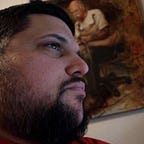Super Powers Activate
I used to be a superhero, and then I realized that in order to be healthy, I had to live like everyone else.
Bipolar, anxiety, and other mental health issues are more prevalent in startup founders than in “normal” society. In fact, in one study, 49% of entrepreneurs reported having at least one mental illness, and a third with two or more.
These mental health issues — ADD, ADHD, bipolar disorder, addiction, depression, or anxiety are unique in one way, they all come with a manic component, which is where most entrepreneurs prefer to live.
What is mania? For me, mania was always a feeling that I could do anything faster than anyone. That I didn’t need to check my work because I could operate at a higher frequency than most. It was so euphoric, and so energetic, that I honestly thought I had a super power, but really it was only bipolar.
I was first diagnosed with bipolar in my 30s. This is really late as it tends to manifest at around twelve. I remember vividly getting the diagnosis, walking to my car, calling my mom and crying because someone finally figured out what was wrong with me.
Initially, my therapist kept pushing me to go to a psychiatrist and get checked for bipolar. He knew of my episodes. Depression sometimes was so deep I couldn’t get off the couch, and other times it was a simple malaise. Manic episodes that went from just talking really fast and non-stop to feelings of euphoria and invincibility. My moods shifted quickly. Sometimes several times in a day. And, more than anything, I self-medicated.
All while running a company and raising money.
Medication followed and initially it was great because the depressions weren’t as deep. But the mania was also more shallow. My super power, the ability to do anything faster and better than anyone, was gone.
At first, I was ok with it, not having a depression that came with suicidal ideation was a fair trade for having to work like “a normal person.”
My procrastination was at an all time high. I was used to waiting for the mania until it hit and I could work faster and better. Being medicated meant that the mania was never coming. The productivity bump I was expecting evaporated.
Finally, I was referred to a therapist that specializes in highly effective folks who had been diagnosed with bipolar and needed to relearn how to work. She walked me through several tips and tactics on how to stay organized and on task.
Honestly, it was hard. I’ve never learned time management or how to use a task list properly. I was a “wait and go” kinda founder. Moreso, I found that my creativity lived in my mania.
Slowly, I began to learn. I figured out that I could no longer wait, instead I needed to just get started (imagine that?). I learned that meetings in calendars are not to remind you when they start, but when they end. My time became precious and I protected it viciously.
Now, I use productivity tools appropriately and to my advantage. I no longer need to wait for a mania that will never come.
What does all this mean for founders?
You are not alone.
We operate as founders in a vacuum often when it comes to our own mental health. We are so afraid to share how we are doing with friends, investors, and teammates for fear that we will be seen as less.
We suffer in silence. We keep it a dark secret. We soldier on.
Stop that.
The single most important thing for a founder to do is to take care of themselves. Without your health, physical or mental, you will never operate at a level necessary for success. It is really that simple.
Let me say that again: Without your health, you are guaranteed to fail.
Take the time to see a therapist or doctor. If you feel that something is not quite right, then something is not quite right.
I spent the majority of my adult life suffering from bipolar. The depressions were deep and the mania high. I was a rapid cycler, which meant I could switch from depression to mania and back quickly. It ruined relationships. It ruined me.
Getting diagnosed and treated was a seminal moment in my life. Everything afterwards changed. I moved closer to being the person I wanted to be. People remarked on how stable I had become. I no longer was a prisoner of my own mind’s ebbs and flows.
The only thing I would change is I would have been diagnosed sooner.
